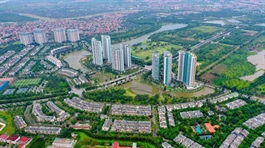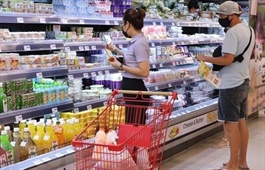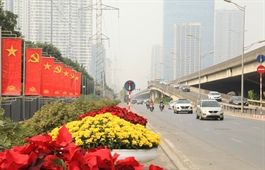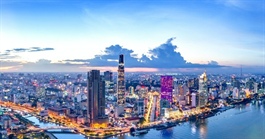Developing a robust circular economy through the best practices of Denmark
Developing a robust circular economy through the best practices of Denmark
A circular economy can help achieve sustainable development goals, effectively tackling climate change and mitigating the negative impacts on the environment. Carsten Baltzer Rode, deputy head of Mission at the Embassy of Denmark in Vietnam, talked to VIR’s Huong Thuy about the practical experiences from Denmark in regards to circular business development.
Can you share some of your experiences in developing circular business models in Denmark?
Denmark has been committed to a green transition and a greener economy for a long time. Some of the things we have been focusing on for decades, for example, involve recycling and utilising waste streams. We have identified significant opportunities for these areas to actually contribute to economic and environmental development.
The transition to a circular economy requires a holistic approach, and it cannot just be a job for the central authorities. It also engages businesses, civil society, and academic institutions. The Danish government has long been working very closely with the private sector to make sure they also feel ownership of circular economic models.
More concretely, in 2016, Denmark established its National Advisory Board for Circular Economy, consisting of 12 business leaders whose role involves coming up with recommendations on how the government can create and support the transition towards a circular economy.
The central idea is to seek collaboration between authorities and private businesses to make recommendations for the government to implement. So this cross-sectoral understanding, and addressing national legislative framework and barriers, are really key.
Another tangible example is something in Denmark we call Circularity City. It is an initiative that was established in 2017, which addresses the construction community in particular, and the municipality involved has played a critical role in that. That’s another important factor to engage on a local level.
Circular economic development in Denmark is very business driven. Without those businesses, it will not be successful. So, a key thing is to encourage and enable companies to commit to developing circularity as a core part of their business.
What are your recommendations to spur the circular economy and circular business development right away?
I can highlight two things. First is raising awareness of the need for circular businesses. It’s important to engage the whole of society and not just central authorities – but also businesses, citizens, and academic institutions. Everyone needs to feel that they have ownership and a role to play in developing a circular economy.
The second aspect is to adapt and develop regulations and policies, as well as break down barriers. The introduction of relevant materials, such as the “Circular Business Models: International Experience and Application in Vietnam” publication, compiled by the Central Institute for Economic Management with support from consultants, is a necessity. The report seeks to address the barriers so that they can be broken down and that is vital. So is putting in legislation that makes it more attractive.
What can the Vietnamese government do to further accelerate circular economy development, and how can Denmark support those efforts?
The aforementioned report provides a lot of really good recommendations to adopt. In addition to that, looking to other countries is always a really good idea when it comes to these issues. Denmark is a front runner, but you can also look at Germany or Sweden, and there are a lot of good experiences to be taken from there.
Denmark has done a few things that could inspire Vietnam. We have a one-stop-shop website that is used to connect Danish circular economic actors, which is a very helpful platform. There are also a lot of white papers and other documents.
What is more, the Leading Nordic Circular Economy Forum will be held in April 2023 in Copenhagen. It will be a crucial event about waste and resource management, and that could also be a good opportunity to take part in and get inspired, especially on waste and utility management.
























